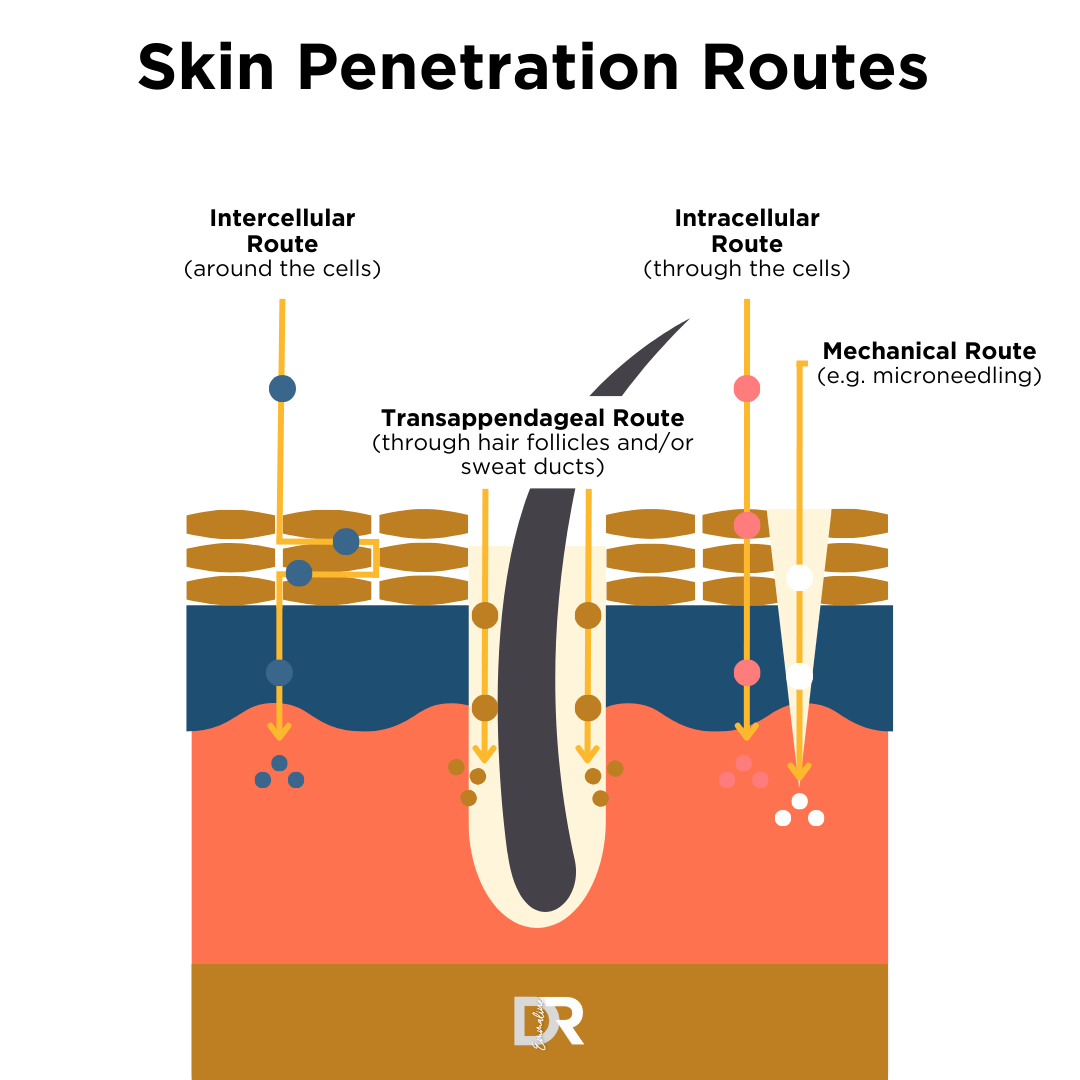What is Medical-Grade Skincare, and is it Actually Better?
The truth about medical-grade skincare from a cosmetic doctor
A few years ago if you tried to tell me that skincare products could transform my skin I would’ve been the first person to roll my eyes and ask if you were sure you hadn’t just fallen victim to some excellent advertising. I didn’t have much interest in skincare as a student, but that was the luxury of being in my 20s and inheriting clear, smooth skin from my mother. But fast-forward and (to my shock and horror) I realised what I thought would never happen had happened: I turned 30. And as I began my aesthetic medical practice I began to think more and more about what I could do to protect and preserve skin for as long as possible. Not only my own, but also my patients’. I saw that it was important for treatment outcomes - injectables are amazing but the results look even better if you take care of your skin. And more often now patients turn to aesthetic doctors to help manage common skincare concerns like acne, rosacea, hyperpigmentation and sun damage.
I wanted to be as knowledgeable as possible and have the best tools in my arsenal to help my patients. So I began to dive deep into medical-grade skincare. My first degree was pure science (I have a BA in biology) so I was in heaven. All I was doing was studying cell biology and biochemistry, reading about cell-signaling pathways, and looking through clinical studies.
So let’s get down to it. What is medical-grade skincare? (Also known as a “cosmeceuticals” or “clinical skincare.”)
Medical-grade skincare can be defined as skincare that is backed by science and clinical evidence. This means that there are published trials and studies - accessible to everyone - that can be examined and reviewed. They contain highly active ingredients at appropriate concentrations, and novel delivery systems that have been shown in research studies to be highly effective. These are the products that aesthetic doctors, dermatologists, and plastic surgeons use to complement their clinical practice and usually are only available via consultation with a medical professional - and for good reason.
But here lies the caveat.
This is what I (and most aesthetic practitioners) would define as medical-grade skincare. But the term “medical-grade skincare” is not regulated.
[Note: for the rest of this article when I use the term medical-grade skincare, this is the definition I am using!]
Let’s do some myth-busting around both positive and negative ideas about medical-grade skincare
Myth 1: All medical-grade skincare lines are the same
Because the term “medical-grade skincare” is not regulated, you have to be careful about who is using it and why. In reality, slapping on the label that something is “clinical-strength” or “medical-grade” is meaningless and could be a way to mislead you.
(Side note: in the same vein, beware companies that use terms like “natural” and “organic.” These are not specifically defined under EU regulation and there is no legal requirement to back up these claims. There is no evidence that simply being “natural” or “organic” gives any clinical benefit to you or your skin. Remember, everything in this universe is made of chemicals - including you!)
In choosing which skincare lines I wanted to offer in clinic, I only wanted to offer skincare lines that had the robust research and science behind them, so that when I make recommendations or prescribe for patients, I know I am giving them something that actually works. When I refer to something as “medical-grade” it’s because I’ve been very impressed with the evidence that’s been accumulated behind the product, and the science in its formulation.
But that’s the way aesthetic doctors, nurses, and dentists approach skincare, and you do need to be aware that not everyone has the same agenda when they use this phrase.
Myth 2: Medical-grade skincare is regulated differently than other skincare
This is a popular misconception I’ve come across, but on balance it’s not accurate. If something is a drug/medicine and needs a prescription or is a medical device, the Medicines and Healthcare products Regulatory Agency (MHRA) regulates it. On the other hand, the manufacture and supply of all cosmetics in the UK is covered by the EU Cosmetics Regulation ((EC) No. 1223/2009) and its amendments. If a product is borderline cosmetic or medicinal, the MHRA will look at these on a case-by-case basis to see how a product should be classified.
There is no separate or special category for medical-grade skincare - which, as we stated in Myth 1, is not a regulated term anyway.
Myth 3: Medical-grade skincare is more expensive than other skincare
Medical-grade skincare products can broadly range in price from around £30 to £130. There are many high-end beauty products that cost as much or much, much more than this. Just remember what you’re paying for - the research and cutting edge technology behind that product. It’s an investment in yourself and your skin health at the end of the day.
Myth 4: Medical-grade skincare contains the strongest ingredients possible
There is a perception that medical-grade automatically means “more active” ingredients or a higher percentage of ingredients. This doesn’t always hold true, and rather than thinking that medical-grade skincare products are “maximum strength” I prefer to think that they are formulated to the appropriate concentrations to give the maximum benefit. For example, studies might show that a certain active ingredient is at its most effective at 20%, but there is little added benefit above this concentration. A decent medical-grade skincare line will know this evidence, and will not look at its competitors and advertise that they exclusively offer the product at concentrations above this as a marketing ploy (because the science doesn’t back this up!).
Making sure the concentrations are right is important, and these potent formulations are used with care for this reason. Consider that most over-the-counter skincare products (which can be bought without a specialist consultation) need to have ingredients that are irritation-free for broad consumer use. This means it has to be mild and non-irritating enough for anyone to just pick up and buy, whether they are using it as intended or not. Some mainstream brands might claim to have high-end ingredients in them, but usually these active ingredients are only present in very trace amounts.
At the end of the day you can end up spending hundreds or even thousands of pounds on pretty-looking products with impressive brand names that just don’t work.
Myth 5: Medical-grade skincare is very exclusive and hard to get
One key thing that sets cosmeceuticals apart is this fact that many medical-grade skincare lines can only be purchased from a practitioner who has undergone required training, or prescribed by a doctor
Why? Because often these treatments target specific skin concerns - like pigmentation, redness, acne, or anti-ageing - and need to be dispensed by someone with knowledge and training who has had a proper consultation with the client. You also need a practitioner who has understanding of the biology of the skin.
This is also because these treatments involve powerful, effective, and proven ingredients. They also tend to use specialised, carefully researched delivery systems to make sure the ingredients get to the exact layer of the skin the are supposed to. They work, but they need to be used wisely and with the guidance of someone who knows what they’re doing and can give medical advice responsibly.
This doesn’t mean that they are exclusive or difficult to get. Most aesthetic doctors or cosmetic dermatologists are more than happy to provide skincare consults to make sure you get the right treatment plan to you.
Having to go through a trained aesthetic practitioner or doctor to get your hands on medical-grade skincare is actually a huge advantage. You get a professional’s opinion and recommendations before you purchase anything, so you know you’re being guided in the right direction.
Doctors also understand that the products we use or recommend and the services we provide reflect back on us and our profession, so we have every incentive to maintain extremely high standards and be the most discerning client of all.
So I hope I’ve convinced you of how incredible medical-grade skincare can be, but also why it’s important to get your skincare information from a knowledgeable professional as it’s all-too-easy to throw around empty buzzwords to sound “science-y” and entice you.
If you are going to invest your time or money into skincare, find some that is actually backed by science and used by medical professionals.














When it comes to skincare, acids have long been the stars of the show—think glycolic, salicylic, and hyaluronic acids. These tried-and-tested ingredients have earned their reputation for addressing common skin concerns such as acne, wrinkles, and dryness.
But did you know there are lesser-known acids that are starting to make their mark in the skincare world? While some have been used for centuries, others are still emerging in research. In this blog, we’ll introduce you to some skincare acids you may have never heard of, discuss their potential benefits, and help you decide whether they should make their way into your routine.